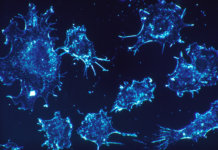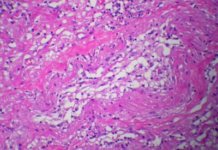Has human longevity reached its limits?
Human existence, as it is known today, is limited in its duration and the risk of death increases with age. At least that’s what most people naturally think. But this was without relying on the latest study on this topic, published last week in Science [1]. This study, conducted on an Italian population, analysed the mortality rate of individuals aged 105 and over between 2009 and 2015 (a total of 3836 people). The results of this statistical analysis seem to show that the risk of dying stabilizes after age 105.
The age-related mortality rate can be plotted on a graph: the curve increases exponentially with age. It is scientifically accepted that this rate increases exponentially until around the age of 80-90. Then, the opinions are very divergent: we have on one side, those who believe in the existence of a “mortality plateau” after this age, which reflects the stabilization of the mortality rate, and on the other side, those who refute this hypothesis and think that the exponential increase in the mortality rate persists beyond 80 years.
The limits of human longevity: a divisive subject
In a publication released in 2016 [2], geneticists had proposed that there was a limit to human life span. Analyzing global demographic data, they concluded that there had been no improvement in human longevity since the end of the 20th century, the record being 122 years, held by the French Jeanne Calment. However, in its recent analysis, Professor Elisabetta Barbi’s team has, on the contrary, shown that there is a plateau of mortality risk after the age of 105, suggesting that there is no limit to human longevity. With such a mortality plateau, the risk of death from one birthday to another after age 105 is roughly one in two [3]. Such a phenomenon suggests that a person who has reached the age of 105 could still live for a very long time [3].

This study was conducted after checking the age of the people included in the survey on their birth certificate. The purpose of this process was to avoid errors in the data linked to age overstatement often found in very old people [1]. The risk of dying according to age has been an intriguing fact for a long time. Since Gompertz’s law in the 19th century which states that the mortality rate increases exponentially with age, the question arises as to the existence of a mortality plateau after a certain age. It was not until the end of the 20th century and the increase in the amount of available and reliable data to accelerate research on this subject [1], but the controversy is still present.
This last study put forward the existence of a mortality plateau within an Italian population of supercentenarians (105 years and older), just like other studies that have shown the same result, particularly in small organisms [4]. It revives the debate on the limit of human longevity, which for them does not seem to have been reached [1]. Such a result could encourage demographic studies on the mortality rate related to age and human lifespan, to understand the mechanisms of human longevity.
References:
[1] Barbi et al., Science 360, 1459–1461 (2018) DOI: 10.1126/science.aat3119
[2] Xiao Dong, Brandon Milholland & Jan Vijg, Evidence for a limit to human lifespan, 13 October 2016, VOL 538, NATURE, 257-259 doi:10.1038/nature19793
[3] Elie Dolgin, There’s no limit to longevity, says study that revives human lifespan debate, Nature 559, 14-15 (2018) doi: 10.1038/d41586-018-05582-3
[4] Natalia S. Gavrilova and Leonid A. Gavrilov, Biodemography of Old-Age Mortality in Humans and Rodents, J Gerontol A Biol Sci Med Sci. 2015 January;70(1):1–9 doi:10.1093/gerona/glu009
Anne Fischer

Author
Auteur
Anne is studying medicine science at the Institute of Pharmaceutical and Biological Science in Lyon and she has graduated with a Bachelor’s degree in molecular and cellular biology at the University of Strasbourg.
More about the Long Long Life team
Anne étudie les sciences du médicament à l’Institut des Sciences Pharmaceutiques et Biologiques de Lyon. Elle est titulaire d’une licence en biologie moléculaire et cellulaire de l’Université de Strasbourg.
En savoir plus sur l’équipe de Long Long Life














